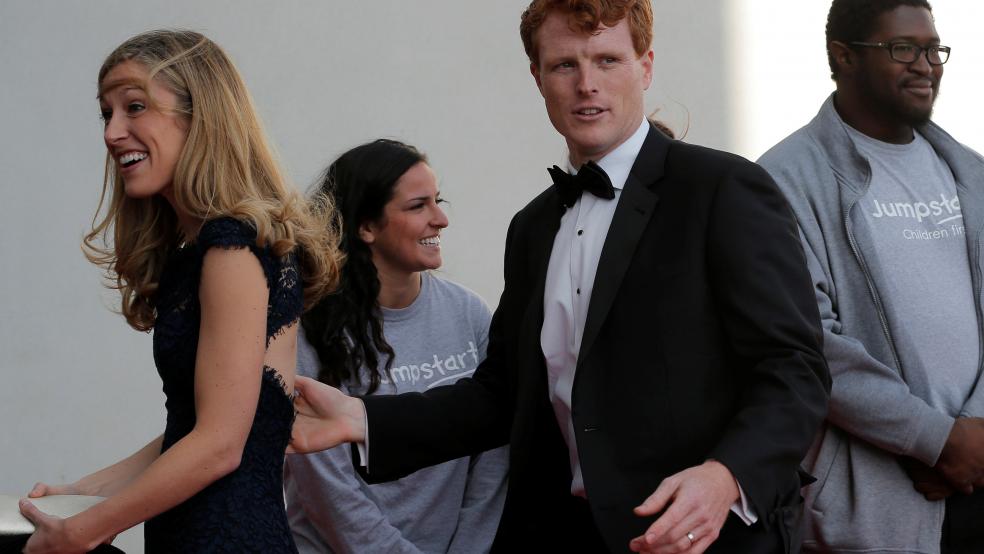There’s no question that President Obama has vetoed fewer bills than just about any other president in history. Since first taking office in 2009, the president has vetoed a grand total of two bills – both relatively obscure measures relating to defense funding and the ability of banks to notarize documents regarding bad loans.
By contrast, many of his recent predecessors were quick to wield their veto pens in sparring with Congress, especially when the opposing party was in charge. Republican President Ronald Reagan vetoed 78 pieces of legislation during his two terms in office; Republican George H.W. Bush struck down 44 bill during his one term; Democrat Bill Clinton vetoed 37 pieces of legislation that made it to his desk; and President George W. Bush vetoed 12 bills.
Related: Obama Wants Long-Term Infrastructure Plan, Not Keystone
WHY THIS MATTERS
If some hoped that a divided government would end gridlock in Washington, they may be in for a nasty surprise. President Obama and the new Republican leadership are carefully preparing to do battle when the new GOP-controlled Congress takes office next week. Both sides are talking about trying to find common ground, but there may be no way to reconcile differences on some of the thorniest issues – including immigration reform, health care, Cuba and the Keystone XL Pipeline.
Obama early on was more focused on persuading Democrats and Republicans to help him pass major legislation than in blocking legislation, including his stimulus package, the Dodd-Frank financial overhaul and the Affordable Care Act. One reason for the paucity of vetoes was the Democratic controlled Senate. After the Republicans took control of the House in 2011 and began cranking out legislation, including 30 jobs bills, 43 repeals of Obamacare, the Keystone pipeline bill and others, Majority Leader Harry Reid and the Democrats served as Obama’s backstop veto.
All that is changing in the wake of the November mid-term election as Republicans prepare to take back control of the Senate as well and extend their position in the House next week. Without a Democratic majority in the Senate to fend off House-passed measures, Obama declared in an interview with National Public Radio aired on Monday that he is bracing to do the job himself.
“I haven’t used the veto pen very often since I’ve been in office,” Obama told NPR’s Steve Inskeep in an interview recorded before Obama and his family departed for their annual vacation in Hawaii. “Now, I suspect, there are going to be some times where I’ve got to pull that pen out.”
The president added, “I’m going to defend gains that we’ve made in health care. I’m going to defend gains that we’ve made on environment and clean air and clean water.”
Related: Talking Past Each Other on Immigration Reform
Despite the months and years of political hand-to-hand combat between the White House and the GOP, Obama said that at least on some issues, the two sides are in sync – including the recent agreement over a $1.1 trillion omnibus spending package for the remainder of the fiscal year.
“There are going to be areas where we agree, and I’m going to be as aggressive as I can be in getting legislations passed that I think help move the economy forward and help middle class families,” he said. This is a point that was quickly seconded today by Senate Republican Leader Mitch McConnell of Kentucky, who will soon succeed Democrat Harry Reid of Nevada as Majority Leader.
“Bipartisan jobs bills will see the light of day and will make it to the President’s desk, and he’ll have to make decisions about ideology versus creating jobs for the middle class,” McConnell said, according to the Associated Press. “There’s a lot we can get done together if the president puts his famous pen to use signing bills rather than vetoing legislation his liberal allies don’t like.:
Obama and McConnell have previously voiced optimism that the two sides can find common ground on legislation to expand U.S. trade opportunities, revamp the corporate tax code and finance new infrastructure. With an eye to the 2016 presidential campaign, McConnell, House Speaker John Boehner (R-OH) and other GOP leaders are eager to demonstrate their party’s ability to do more than attack Democratic policies and shut down the government.
Related: The Senate Baton Passes to McConnell and the GOP
With time running out on his second term, Obama is determined to preserve and burnish his legislative legacy--that means protecting the Affordable Care Act, immigration reform, and clean air rules from renewed Republican assaults and adverse court rulings.
Republicans have vowed to roll out a series of measures early in the New Year that would pose a direct challenge to the president’s agenda. That includes yet another bill to derail Obamacare; an amendment to block Obama’s executive order protecting nearly five million illegal immigrants from deportation; obstacles to prevent another executive order restoring diplomatic and commercial ties to Cuba; and legislation that would threaten new economic sanctions against Iran amid negotiations over Tehran’s nuclear research program.
During his interview with NPR, the president challenged Republicans to demonstrate they can do more than merely attack his policies.
“Now you’ve got Republicans in a position where it’s not enough for them to simply grind the wheels of Congress to a halt and then blame me,” Obama said. “They are going to be in a position in which they have to show that they can responsibly govern given that they have significant majorities in both chambers. And what I’ve said repeatedly is that I want to work with them, I want to get things done. I don’t have another election to run.”
Top Reads from The Fiscal Times
- 10 Outrageously Pricey Tax Breaks ‘Gifted’ by Congress
- Single Payer Health System Dies in Vermont
- Why Jeb Bush is a Last Century GOP Candidate





